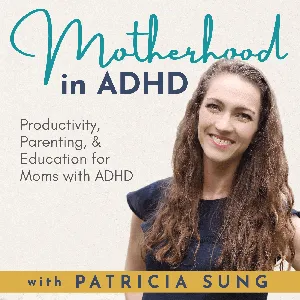Podcast Summary
Improve health with video games: Video games can enhance memory, focus, spatial skills, multitasking, and even change the brain for better abstract reasoning and problem solving
There are simple ways to improve mental and physical health, and one such way is through playing video games, contrary to popular belief. While it may seem like a waste of time, recent research suggests that certain types of video games can actively benefit the brain and eyesight. They can enhance working memory, focus, spatial skills, and multitasking abilities. Even more impressive, these games can change the brain in areas associated with abstract reasoning and problem solving. So, the next time you're looking for a quick and effective way to boost your health, consider picking up a video game controller. And if you're in the market for a new phone plan, Mint Mobile is offering a significant discount on their unlimited plan, bringing it down from $30 a month to just $15 a month. So, whether you're looking to improve your health or save some money, there's a little something for everyone.
Improving cognitive functions through video games: Action games can enhance memory, abstract reasoning, problem-solving skills, and even improve vision by training the brain to multitask, ignore distractions, and spot details in busy scenes.
Video games are not just for entertainment, but they can also be beneficial for improving various cognitive functions. Playing action games, which involve quick decision making, multitasking, and spatial ability, can help train the brain to take in multiple things at once, ignore distractions, and spot details in busy scenes. This can lead to improvements in memory, abstract reasoning, and problem-solving skills. Additionally, some studies suggest that playing high action games can even improve vision, specifically contrast sensitivity, which is useful in everyday life and can decline naturally with age. However, it's important to note that not all games provide these benefits, and more genteel games may not be as effective. As with any activity, there can be potential downsides to excessive gaming, such as addiction and negative social interactions, so it's important to use games in moderation and maintain a balanced lifestyle.
Video games: More than just a time-waster: Research shows that violent video games have a negligible impact on youth aggression, but certain games can enhance attention, perception, spatial cognition, working memory, and multitasking skills, with benefits extending to everyday tasks
While video games can be addictive and manufacturers use various tactics to keep players engaged for longer periods, the evidence suggests that the long-term impact of violent games on youth aggression is negligible. However, research also indicates that certain video games, particularly first-person and third-person shooter games, can have positive effects on the brain. These games enhance attention, perception, spatial cognition, working memory, and the ability to multitask. Surprisingly, benefits derived from these games extend to everyday applications, such as laparoscopic surgery and driving. The discovery of these cognitive enhancements was a serendipitous finding, as researchers initially focused on measuring attention. Despite the common criticism of video games being a waste of time, this research underscores the potential benefits they can offer.
Improving Attention with Video Games: Playing certain video games, especially first and third person shooters, can enhance attention and attention control by activating the brain's top-down attention network. Effective practice involves short, frequent sessions of around 30 minutes per day, 5 times a week for 10-15 weeks.
Playing certain types of video games, particularly first and third person shooter games, can significantly improve attention and attention control. This enhancement occurs due to the activation of a network in the brain responsible for top-down attention, which becomes more efficient after training on these types of games. The effects can extend beyond improved attention, with some studies suggesting that vision may also benefit. For those unfamiliar with these types of games, driving games that require attention division between focusing on the path and avoiding obstacles can be a good starting point. It's important to note that there is an optimal dose for these games, with small, distributed practice sessions of around 30 minutes per day, 5 times a week over a period of 10 to 15 weeks being most effective. However, there is a risk of addiction with some game mechanics, so it's crucial for game designers to provide clear endpoints to sessions and for society to protect those who are more susceptible. Overall, the research suggests that video games, particularly those with the right mechanics, can have positive effects on mental health and attention.
Exploring small habits for big improvements: Daily Sudoku puzzles can enhance memory and eyesight, singing lifts mood and reduces anxiety, Sideways podcast explores mind control and originality, and Quince offers affordable, high-quality fashion
Incorporating small, daily habits into your routine can have significant positive impacts on your body and mind. The first example discussed is the practice of doing a daily Sudoku puzzle for just 30 minutes a day to enhance working memory and improve eyesight. The second example touched upon the benefits of singing, such as lifting mood, reducing anxiety, and even boosting the immune system. In the realm of ideas, Sideways podcast explores the concept of mind control and originality. Lastly, for those looking to upgrade their style without breaking the bank, Quince offers high-quality, ethically-manufactured clothing and accessories at affordable prices. So, whether it's through brain games, singing, or fashion, remember that small changes can lead to big improvements. For more insightful episodes, be sure to subscribe to the respective podcasts on BBC Sounds for Sideways and Everything Iconic with Danny Pellegrino.







